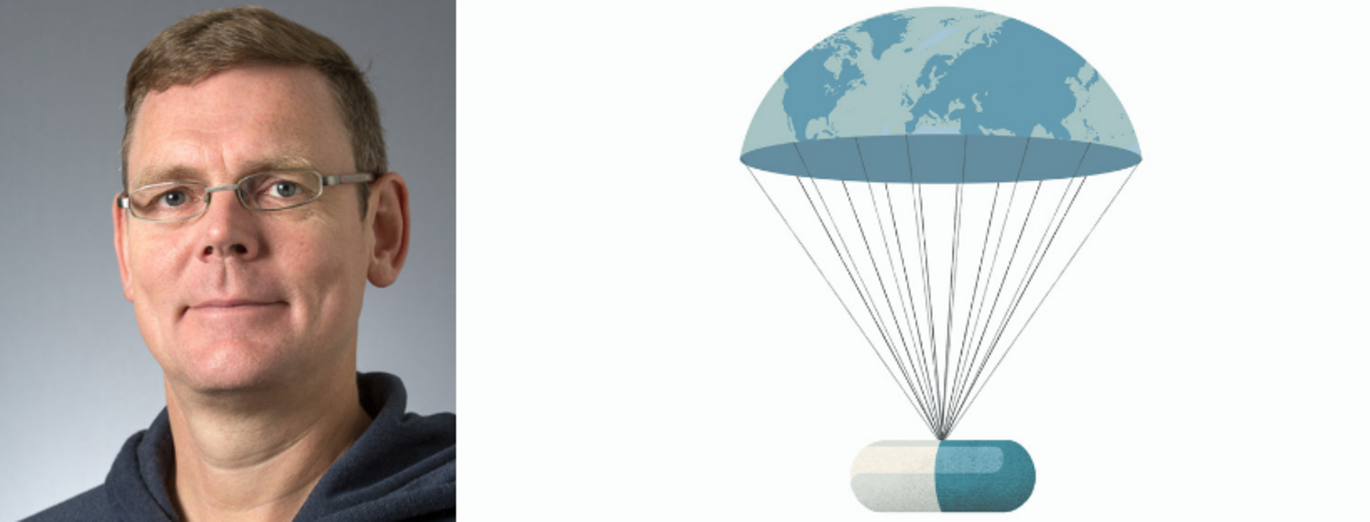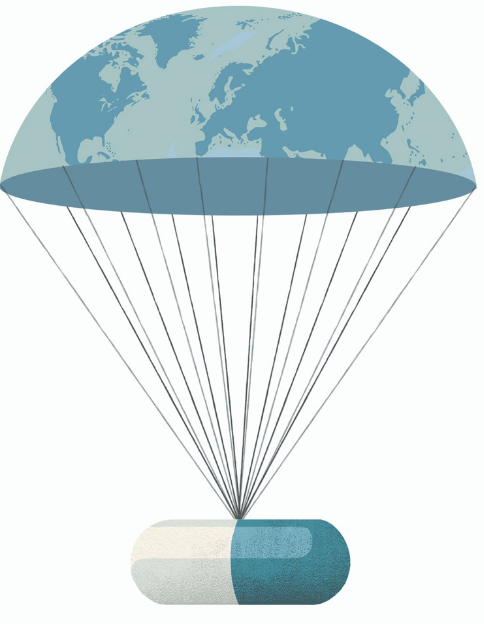Christian Wejse studies the world’s deadliest infectious diseases. But it’s so hard to raise funding for his research that he can’t keep his research station in West Africa open all the time
His research can mean the difference between life and death for victims of tuberculosis in West Africa. But he still has trouble raising funding for it. Politicians and foundations would rather put their money into health research that benefits the Danish population.

Translation: Lenore Messick
Christian Wejse is an associate professor of global health at the Department of Public Health at AU, as well as a medical specialist in infectious diseases at Aarhus University Hospital. And for many years, he has been conducting research on tuberculosis – a disease his Danish patients don’t need to worry about dying from, because we can count on getting treatment in time here in the developed world. But this is far from the case for the patients he treats at a research station in the West African country Guinea-Bissau.
Every year, three million people contract tuberculosis in this part of the world – which is synonymous with a death sentence for many of them. One major cause of the high mortality rates is that the victims of the disease simply aren’t diagnosed.
Dr. Christian Weise is working on methods to ensure that more patients in Third World countries are diagnosed in time to save their lives. But even though his research is literally a matter of life and death, it’s difficult to get grants from foundations to finance it.
If you can’t get money, you’re just not good enough
“But in spite of difficulties, I have actually managed to find funding in different ways,” Wejse says.
Which he wants to stress because he has in fact succeeded in keeping his research going for fifteen years, despite the financial challenges. But that’s not the only reason:
“Most scientists will say that if you can’t attract money to your research area, it’s because you’re not good enough. And I don’t really want to sound like a whiner who’s complaining about being passed over,” Wejse explains.
Nonetheless, he has agreed to help us highlight some of the structural aspects of the way we finance research today that make it difficult to find funding for research projects in the Third World.
“And it’s clear that there are some structural conditions that make it difficult if you’re studying something that’s a larger problem globally than in Denmark, and where the research isn’t performed here in this country,” Wejse explains.
The Third World has to pay the price
More and more, Wejse has to make do with smaller grants for his research, which is not least due to a change in focus on the part of Danida, which has focused less on promoting health in the Third World in the past few decades than before. And Wejse has felt the effects:
“Many years ago, I got funding from the former Research Council for Development Research. But that’s become completely impossible since Danida adopted a strategy that doesn’t focus on health, and the council decided that funding can only be applied for by African partners from a few selected countries – those funds are practically speaking inaccessible to most Danish researchers working on global health today.”
For Wejse, the consequences of this policy are dramatic:
“That a large research group and field site in Africa are constantly under threat of closure, and that what could be a major resource for important global research questions has to limp along and shut down and reopen, depending on how the last round of applications went.”
According to Wejse, it’s people in the Third World who will pay the price for the political priorities in the strategy Verden 2030 (‘World 2030, strategy of the Ministry of Foreign Affairs of Denmark, ed.).
“I’ve observed that my European colleagues, especially Nordic ones, have much better access to applying for funds in the field of global health. So on top of the general cutbacks in public research funding, I also think there’s been a conscious decision not to support research that takes place in developing countries,” says Wejse.
He continues:
“I think it’s a shame that there’s so little funding that’s directly allocated to attempts to solve some of the major global challenges in relation to healthcare.”
Cannabis and the climate are swallowing the grants
Over time, Wejse has encountered three major justifications for rejections of his grant applications: it’s not the right time for the project, the project wasn’t presented well enough, or the grantmakers weren’t completely satisfied with his CV.
“I believe that all researchers feel that they’ve been passed over for unfair reasons once in awhile, so it’s hard to judge anything with certainty about priorities on the basis of rejections. But completely objectively, I have observed that there aren’t a lot of grant calls that offer the possibility of applying for research on global health,” he explains.
Wejse also recognizes the increasing tendency to earmark research funding for themed research projects.
“There are more and more calls that are motivated by a concrete political agenda to support an area, for example cannabis or the climate. When the funds that have traditionally been available in the area aren’t there anymore due to general cutbacks and new strategies at Danida, I can primarily apply through the open calls. And the competition is tough here, and the opportunities are limited for someone like me, because there are often requirements that the project has to benefit Danish patients, or that the research has to take place in Denmark.”

So where does this leave Wejse? The trend is clear:
“I’m becoming more and more dependent on foundations that award smaller grants, like Lægevidenskabens Fremme, SSAC and Lungeforeningen, which is the only foundation with tuberculosis in its charter – but which also primarily wants to support projects focusing on Danish patients.”
But despite the hard odds, he isn’t planning on giving up the battle for financing:
“I’ll keep on going because what I work on is interesting.”

